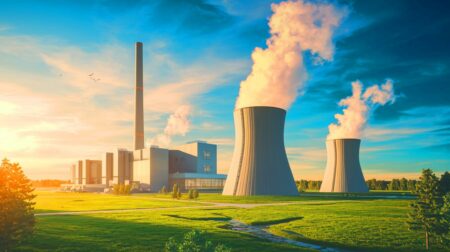The United Arab Emirates is demonstrating a regional sea change on fossil-fuel energy as it hosts the largest sustainability event in the Middle East, with thousands of global delegates attending its World Future Energy Summit (WFES) at Abu Dhabi Sustainability Week
The event, which runs through January 18, has doubled in size since it was launched 10 years ago alongside the International Renewable Energy Agency (IRENA), which is headquartered in Abu Dhabi. This year’s ADSW immediately followed IRENA’s general assembly, with an IRENA report released Monday that projects seven GW of new renewable power installation by the early 2020s in Gulf Cooperation Council (GCC) nations. The region already had 146 GW at the end of 2017, nearly 70 percent of it in the UAE.
“As a fossil-fuel exporting region, the GCC’s decisive move towards a renewable energy future is a signal to global investors and to the energy community that we are experiencing a step-change in global energy dynamics and a true energy transformation,” said IRENA chief Adnan Amin.
Some 175 nations are now represented at ADSW, according to Dr. Sultan Ahmed Al Jaber, a UAE state minister and chairman of its renewable energy company, Masdar. The company has a presence in 20 different countries with USD$8.5 billion in renewables investments.
“The UAE’s pursuit of renewable energy is a natural extension of our existing energy leadership and commitment to sustainability. It is a reflection of our leaders’ dedication to addressing global challenges in close partnership with the global community,” said Al Jaber in the opening address. “We are building bridges across borders and bringing the public and private sector together around a single common cause.”
That’s especially true among African nations, with many heads of state in attendance. They included presidents Mohamed Ould Abdel Aziz of Mauritania and Ibrahim Boubacar Keïta of Mali, as well as Hage Geingob of Namibia and Paul Kagame of Rwanda, who also serves as African Union president.
Al Jaber noted that global population is set to reach 10 billion by 2050, with increasing demands for energy across the developing world. Much of that growth is on the African continent, underscoring the imperatives of meeting sustainable development goals through renewable energy sources.
“As we enter the fourth industrial age, artificial intelligence, big data and the internet of things are multiplying efficiencies and redefining possibilities, across each and every industry,” Al Jaber said. “This era of industrial convergence has the potential to completely transform the sustainability landscape.”
The first Abu Dhabi Sustainable Finance Forum will be held Wednesday with an emphasis on increasing the adoption of sustainable financing, while setting the stage for Abu Dhabi Global Market to unveil its plans for an international sustainable finance hub.
Other events – ranging from rain enhancement technologies, to youth skills development and the role of women – all turn toward the theme of industry convergence and its six pillars. They include climate change, water resources, future mobility, space, biotech and “tech for good.”
China’s President Xi Jinping also sent a message during the opening ceremonies, delivered by special envoy Yang Jiechi in praise of the Emirati vision and promising Beijing’s cooperation. “Through this platform, the world sees a high-yielding oil producer that keeps fueling the global economy and an incubator of new development ideas that provide intellectual impetus to human progress,” he said. “The late president Sheikh Zayed bin Sultan Al Nahyan understood the importance of planning for the future as the oil would eventually end.”
Did you like it? 4.5/5 (26)









